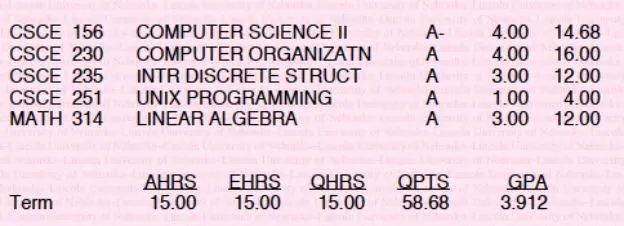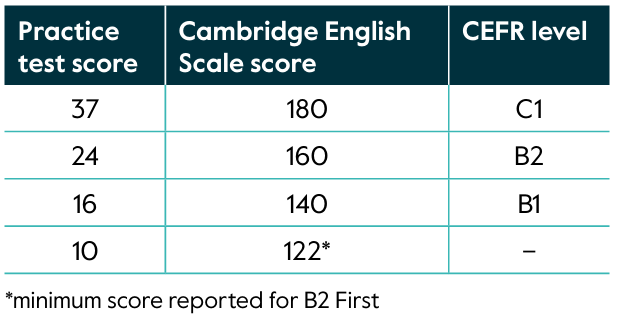新冠疫情引发了关于标准化考试成绩的价值及其预测大学成功的能力的持续辩论的紧迫性。在即将到来的申请周期(2022 年秋季入学)中,每所常春藤院校都将保持考试可选性。
因此,在过去,当中国国际学生可以依靠高 SAT 分数作为申请的额外积极信息时,考试可选招生现在给招生官施加压力,要求他们全面定义整体审查。在这样做的过程中,考试成绩以外的因素很快就变得非常重要,对于没有在高中时期在学术之外培养自己的学生来说,入学就变成了一种不同类型的挑战。
尽管学生花在准备申请上的时间很长,但在审查申请时,学生通常希望他们的招生官花在审查申请上的最长时间是 15 分钟。对于学生来说,这不是很多时间来给人留下积极的印象并让读者想了解更多关于他们的信息。
进入常春藤,不是花几个小时培养4.0 GPA的学生……相反,进入常春藤的学生是可以相当轻松地获得4.0的学生,而他们放学后的时间并没有花掉进一步学习,而是通过课外或课外活动来提高他们的领导能力,回馈社区,探索他们的热情,或者换句话说,不仅仅是课堂上的学生。
全能型学生
我们一直在美国招生中听到“全能型学生”,但我们中的任何人真的知道它的含义吗?高等教育纪事聚集了教育专家,讨论他们在寻找完美的全能型学生时期望找到什么。没有集体的正确答案,每个专家都以自己的方式定义它:
“这是一个可以在课堂内外找到目标和意义的学生”
“一个自我激励和自我效能的学生”
有趣的是,当大学谈论全能型学生时,他们是在谈论他们的机构如何提供全面的学生体验——而不是指他们对申请具有“全面审查”政策的学校的学生的期望。招生审查员所认为的全面性与所在机构的教育工作者所认为的“全面性”之间存在差异。
然而,考虑到教育工作者在课堂外谈论技能,也提到了自我激励和自我效能,我们可以得出结论,招生会寻找技能:敢于挑战、表现出主动性和创新性的学生,以及寻求在课堂之外扩展他们的知识和贡献。
3项关键招生标准
领导力 Leadership
领导力一直是常春藤大学在申请者申请中审查的一件事。学生不仅担任领导角色,而且他们是一个优秀的团队合作者吗?在这个不断变化的世界中,学生需要能够掌握这两个角色,因此在您的参与中成长很重要。没有人通常从领导一个组织开始,而是通过培养他们在团队中的角色和关系,他们获得了进步所需的技能和知识——因此,在学生组织中,申请者应该成长为领导他们在大一时首次加入的团队。
承诺 Commitment
承诺是有价值的,因为它不仅反映了连续性,而且反映了随着时间的推移发展某些东西的热情或意愿。在高中生涯中加入 10 个不同的组织确实表现出对活动的兴趣,但可能不会表现出任何对事业的坚定承诺或热情。然而,如果学生加入了 10 个不同的组织,它们都专注于一个中心主题(例如,老年人),那么随着时间的推移,就会对一个专业团体做出承诺。因此,在选择要参加的活动时,加入你最感兴趣的活动——这更有可能创造出你作为一名学生的形象,专注于围绕一个激情领域做事。
同理心 Compassion
鉴于 COVID-19 带来的动荡时期,同理心已成为美国更加重视的东西。学院和大学正在寻找关心和回馈的学生,这比以往任何时候都多。随着一个常见应用问题的改变(包括一个关注感恩的新问题),很明显,机构正在寻找善于思考、善良的学生加入他们的机构。反思你为他人所做的事情,并继续向外关注而不是只关注自己:换句话说,是的,你正在学习变得更聪明(出于你自己的原因,比如找工作),但你能提供什么好处与您的技能和学习的其他人?
总结
学生不仅需要向顶尖学校证明他们是好学生,更重要的是,他们是好人。这并不容易用分数来量化,因此学生必须积极与周围的人互动,以证明这些利用情商的技能。不再是暑期学习就足以获得常春藤盟校的录取,即使你的简历上有一些数字或课外活动,问题仍然存在:“你是谁,是什么激励你,你如何探索你的激情以及如何 你会给我们即将到来的班级带来一些不同的和善良的东西吗?”
英文原文:
Applying to the University of California: Lessons Learned from UC Admissions
This article will expand the understanding of the UC’s 13 factors for admission while also highlighting the important aspects to writing and responding to the UC personal insight questions.
Although there are nine University of California campuses (UCSF does not take undergraduate students), each one is distinct from others. Looking at ranking, students and parents likely hope for UC Berkeley and UCLA. Looking at campus size, those who want a smaller campus where students have more access to faculty, the choice may likely be UC Merced, which boasts a small campus of about 8000 students. And looking at physically impressive campuses, students may choose UC Santa Cruz. Though the campuses are different, the application for undergraduate students remains focused on the 13 factors. Let’s discuss what they are and how to address each.
The 13 Factors for Admission
-
Grades: this is expected as it would be for any college; the better your GPA, the higher your chances are of getting into the more competitive UCs.
-
Performance in classes (and number of classes) beyond the basic courses high schoolers are expected to take. For example, UC applicants are expected to take two years of high school (World History and US History) and if a student takes a third History course, this would be looked at as ‘beyond’ the minimum requirement.
-
Performance in AP, IB, Honors or College Level courses. Like all other colleges, the UCs are looking for students who choose to challenge themselves.
-
Rank at the end of your junior year. They are looking for the top 9% ranking within your high school.
-
Quality of your senior year program. This has to do with an admissions officer looking at your courses and things such as whether or not you are taking challenging courses, or just taking the ‘easier’ courses to inflate your GPA.
-
Quality of performance relative to opportunities at your school. In this case, they are looking within a student’s context. If the school offers thousands of activities for students to engage in but a student only does one club, does that mean they have taken advantage of the school’s opportunities? It is important to note that admissions are looking at how students take advantage of all the opportunities at their school.
-
Outstanding performance in one or more subject areas.
-
Outstanding work or projects in one or more subject areas. Students need to demonstrate more beyond just classwork.
-
Improvement in academic performance. Students need to show an ‘upward trend’ in the grades they receive, despite courses getting more challenging as they get older.
-
Special talents/interests. This is the part that requires longer to develop than one semester–what makes a student stand out and how have they developed this over time?
-
Special projects within the school curriculum. Again, what initiative has the student taken to apply their work outside the classroom?
-
Academic accomplishments despite challenges faced. Things like refugee status, first generation students, disabilities all factor into the equation. A student who has, against all odds, done well for themselves will be viewed differently given their resiliency
-
Location of secondary school and residence. The UCs are mandated to accept the large majority of California residents into their incoming class.
Note that each campus weighs the factors differently when it comes to admission and students should look carefully at how each school reviews its applicant and weighs their application components.
How to Approach the Important PIQs
Attending a weeklong conference with UC admissions officers, it is clear that they are overworked but love their jobs. Unlike institutions that accept the Common Application, the UCs admissions staff are looking, very quickly, to get to know the student via shorter ‘soundbytes’. The questions they ask students to complete are only 350 words long and the specific guidance, which I heard over and over, was “write the essays as if we are talking to you”. They are not looking for an essay you would submit for your English class, nor an essay that you would submit for any class. Instead, students are asked to imagine they are sitting in front of the admissions officer and simply answer the question as if they were in conversation together. They do not call them essays and clearly reiterate these are “Personal Insight Questions” to get to know the student. Florid language which we use when we write creatively, therefore, should not be a part of the UC PIQ responses because 17-18 year olds typically do not speak in this way.
Basic Tips from UC Admissions Staff
-Treat the PIQs as “interview on paper”–what do you want to tell admissions?
-Do NOT copy/paste the Common App question – these responses are supposed to be answered differently from the Common App essay
-Think of this as interview, focusing on CONTENT not style
-Use “I” statements
-Write persuasively
-Do not use quotes, song lyrics….the PIQs are about your words
-Do not use literary or descriptive language because this is not a creative writing assignment
And most importantly when you write this, really think: “how would I just answer this question aloud?”
Good luck!












